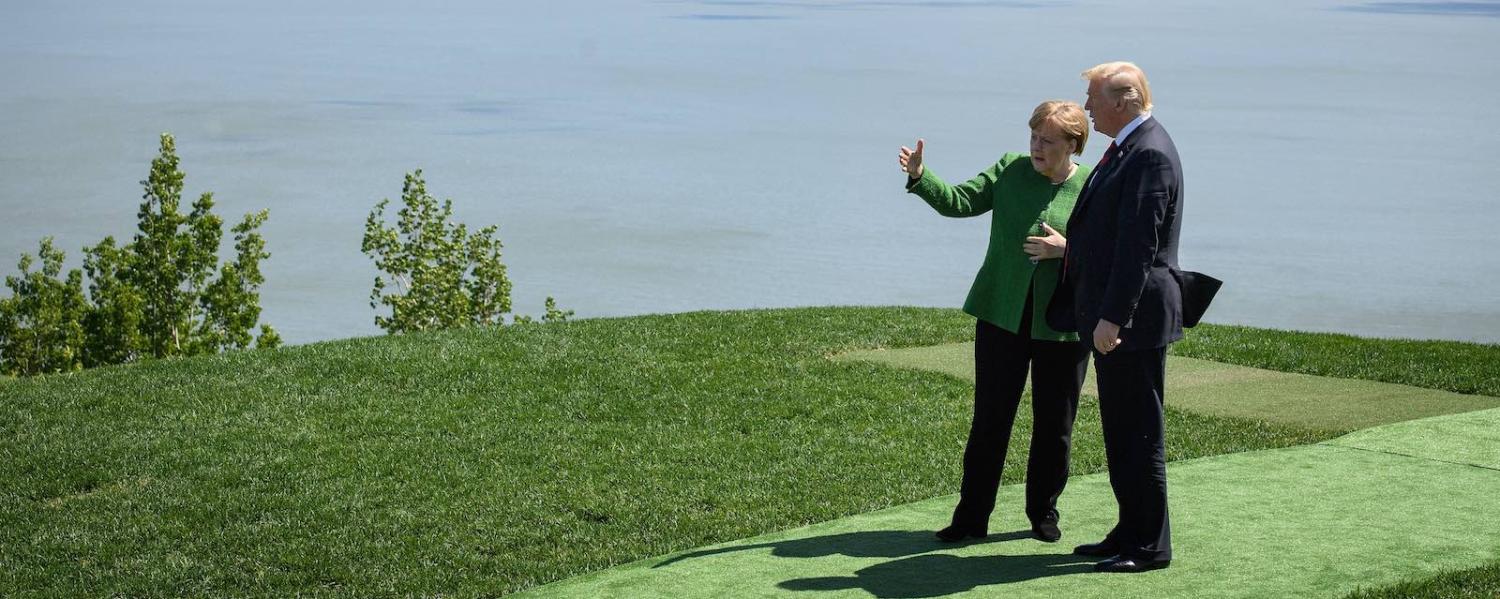The week that was on The Interpreter.
German Foreign Minister Heiko Maas delivered a remarkable speech in Berlin on the fraying transatlantic alliance. Marcus Colla:
Under US President Donald Trump, Maas intoned, ‘the Atlantic has become wider’. An order forged in the ashes of the Second World War and built on decades of mutual trust, cooperation, and economic advancement: all destroyed by one man’s impulsive tweeting thumbs.
Like their Australian counterparts, German intelligence agencies have warned of influence operations directed by the Chinese Communist Party. Frances Kitt and Lucrezia Poggetti:
The German and Australian governments have a lot to learn from one another about the mechanisms and guidelines used to manage CCP influence; how their bureaucracies coordinate on these issues (internally and externally); and the assumptions that underlie their thinking. As liberal democracies, it is their job to find ways to manage interference from authoritarian states while ensuring that they stay true to their democratic selves.
Robert Kelly on what the Singapore Summit means for South Korean President Moon Jae-in:
But because there is no hard substance to it, the Sentosa Declaration does not lock Moon into any framework or direction. It is the best of both worlds for Moon: Trump’s taste for substance-free publicity and disdain for detail both removes him from the process now, and lets Moon more or less do whatever he likes.
Japanese Prime Minister Shinzo Abe was largely missing from discussions of the Singapore Summit between US President Donald Trump and North Korean Leader Kim Jong-un. Lauren Richardson:
Abe has sought to pursue the North Korean abductions and missiles issues via Trump, urging his ally to raise them with Kim at every opportune moment. The recent regional rapprochement with Kim Jong-un has, however, undermined this approach and left Abe in a quandary.
Qatar is pivoting towards China, a year after Bahrain, Saudi Arabia, the United Arab Emirates, and Egypt severed diplomatic ties with Doha. Anas Iqtait:
The central theme of cooperation between the two nations lies in the energy sector; here the strategic significance of Qatar to China’s security will be shaped by Qatar’s uninterrupted and expanding supply of natural gas to fuel China’s rising demand for energy.
The Afghan government and the Taliban have agreed on a ceasefire for the first time in their seventeen-year conflict. Mohib Iqbal:
Images of armed Taliban militants offering Eid prayers alongside Afghan army soldiers and celebrating Eid festivities with ordinary Afghans, including women who were banned from public during the Taliban regime, were prominent on social media. These extraordinary scenes were unimaginable only a few days before.
Indonesia won its bid for a non-permanent seat on the United Nations Security Council in 2019–20. Sian Troth:
Winning attention for regional issues proved difficult for Australia during its 2013–14 tenure; hopefully Indonesia will fare better. I believe there are two key areas where such action would be particularly valuable: the Rohingya crisis, and the rights of migrant workers.
Almost forty-five years after the end of the Vietnam War, the Vietnamese diaspora is still distant from the homeland. Vu Lam:
No matter how and why the Vietnamese people have become disintegrated, they still share a relatively homogenous culture and a common national identity. To tap the full potential of Vietnamese overseas, the cause of reconciliation should be stepped up.
James Liebold argues that Australia should openly condemn the actions of the Chinese government in Xinjiang:
If Australia is unwilling to publicly name and shame Beijing, it has little hope of changing China’s behaviour. The failure to speak out not only sanitises the actions of an abusive regime, but also contributes to China’s efforts to redefine international human rights standards.
Peter McCawley cautions us to weigh China’s development needs against their expansive economic diplomacy:
The main challenge in China for at least the next four or five decades will not be expanding influence across Asia, but, rather, tackling development challenges at home. And since, as the American political leader Tip O’Neill would have it, ‘all politics is local’, it is unlikely that President Xi Jinping will ignore this imperative.
On 9 June, a TEDx event was held in Kakuma, a refugee camp in Kenya. Rachel Mason Nunn:
A report compiled by the World Bank found that the Kakuma Refugee Camp had an economy valued at US$56 million per year. The World Bank attributed this in part to the entrepreneurship of the individuals residing in the camp, many of whom had built profitable businesses since seeking refuge in Kakuma.
Russia has a (somewhat) secret navy, the Main Directorate of Deep-Sea Research. Victor Abramowicz:
Its submarines and surface vessels have been increasingly active, particularly around transatlantic communications cables. By some estimates, 99% of global international data (including phone and internet) moves through these cables rather than paths such as satellites, meaning Russia, through tapping the cables, has access to an extremely rich source of peacetime intelligence information, and the ability to hold it at-risk should tensions rise.
Trade tensions between the US and China escalated this week. John Edwards:
If it was the bilateral deficit alone, the dispute would not have come this far. It is possible for China to reduce its bilateral surplus with the US by purchasing more from it and less from other countries. But the economic arithmetic tells us it is not possible to reduce the US trade deficit with the rest of the world unless the US saves more or invests less.
